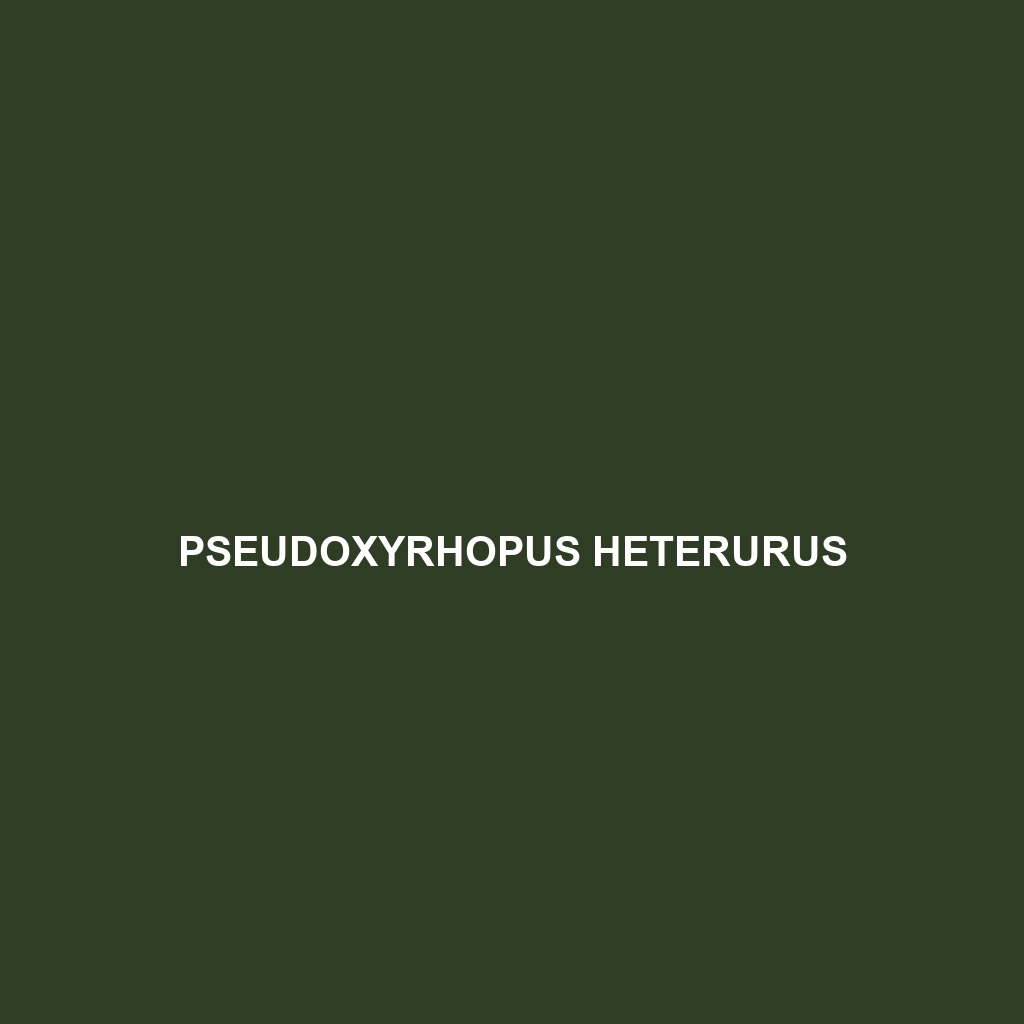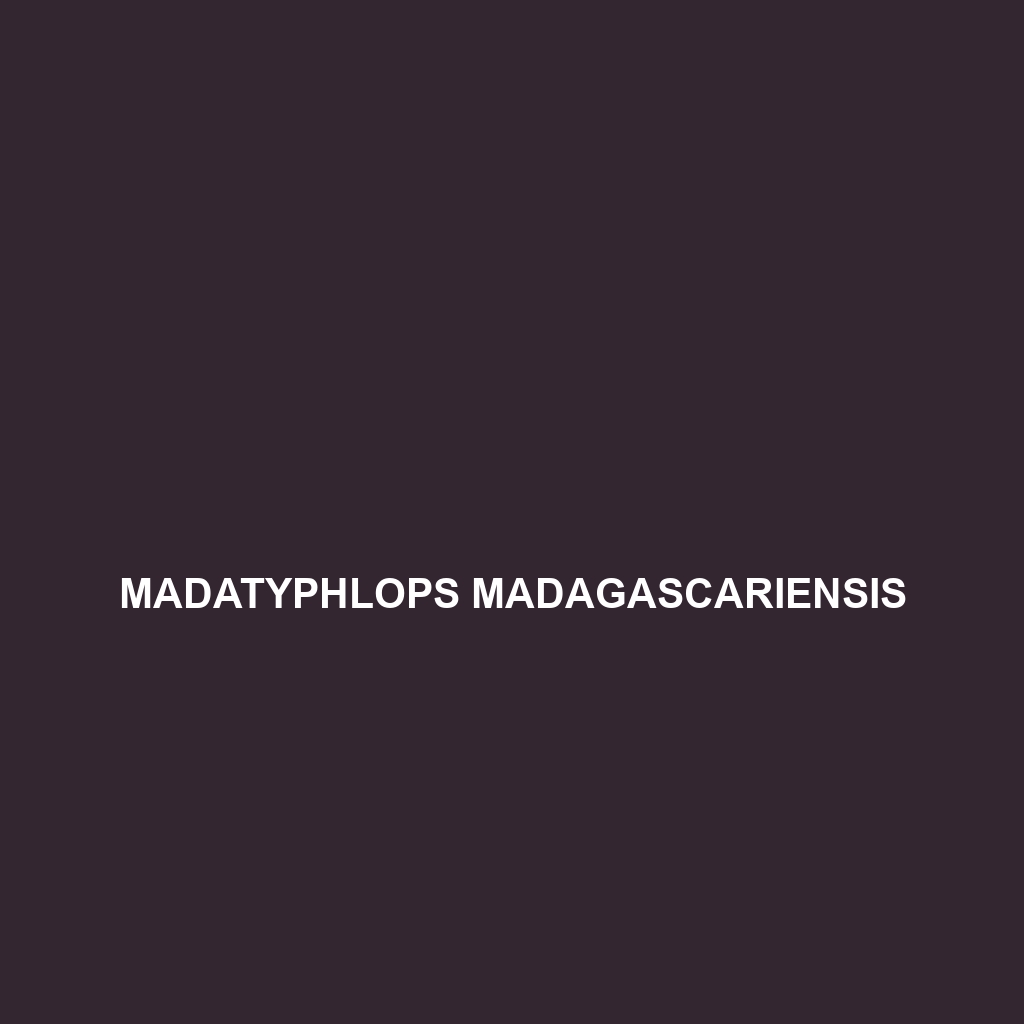<b>Pyxis planicauda</b>, commonly known as the flat-tailed tortoise, is a vulnerable species native to the rainforests and savannas of Madagascar. Characterized by its distinctive flat carapace, nocturnal behavior, and herbivorous diet, this tortoise plays a vital role in its ecosystem through seed dispersal and soil aeration.
Tag: Madagascar conservation efforts
Pseudoxyrhopus heterurus
<p><b>Pseudoxyrhopus heterurus</b>, or the Malagasy cat-eyed snake, is a nocturnal species native to Madagascar's rainforests, recognized for its striking cat-like eyes and slender body adorned with varied color patterns. This adaptable insectivore thrives in humid environments and plays a vital role in maintaining ecological balance within its habitat.</p>
Pyxis planicauda
<b>Pyxis planicauda</b>, commonly known as the flat-tailed tortoise, is a vulnerable species native to the rainforests and savannas of Madagascar. Characterized by its distinctive flat carapace, nocturnal behavior, and herbivorous diet, this tortoise plays a vital role in its ecosystem through seed dispersal and soil aeration.
Pseudoxyrhopus heterurus
<p><b>Pseudoxyrhopus heterurus</b>, or the Malagasy cat-eyed snake, is a nocturnal species native to Madagascar's rainforests, recognized for its striking cat-like eyes and slender body adorned with varied color patterns. This adaptable insectivore thrives in humid environments and plays a vital role in maintaining ecological balance within its habitat.</p>
Phelsuma pasteuri
Experience the vibrant beauty of the Phelsuma pasteuri, a striking green gecko native to the rainforests of Madagascar, known for its agility, unique color patterns, and vital role in seed dispersal and insect population regulation. This diurnal species thrives in humid environments, making it an eye-catching addition to any exotic pet collection.
Madatyphlops madagascariensis
The Madagascar blind snake (<i>Madatyphlops madagascariensis</i>) is a fossorial species native to Madagascar, characterized by its elongated body and vestigial eyes, thriving in diverse habitats such as rainforests and savannas. Primarily nocturnal and insectivorous, it plays a crucial role in controlling ant and termite populations within its ecosystem.
Madascincus nanus
Discover the fascinating Madascincus nanus, or Madagascar skink, a small, adaptable species thriving in Madagascar's diverse habitats. With its striking brown and yellowish hues, this diurnal skink plays a vital role in ecosystems by regulating insect populations and contributing to soil health.
Madascincus mouroundavae
<p>The <b>Madascincus mouroundavae</b>, a small to medium-sized skink found in Madagascar's rainforests and savannas, features vibrant green and brown coloration for effective camouflage. This insectivorous species plays a crucial role in its ecosystem by controlling insect populations and aiding in plant seed dispersal.</p>
Madascincus ankodabensis
Discover the unique Madascincus ankodabensis, a fascinating skink native to Madagascar's lush rainforests, known for its striking dark brown coloration with lighter stripes, diurnal behavior, and essential role as an insectivore in its ecosystem. With a vulnerable conservation status due to habitat loss, this species exemplifies the rich biodiversity of Madagascar and the need for ongoing ecological protection.
Blaesodactylus victori
Discover the fascinating <i>Blaesodactylus victori</i>, a 12-15 cm nocturnal gecko found in Madagascar's arid habitats, known for its unique coloration, climbing abilities, and critical role as both predator and prey in its ecosystem. This vulnerable species faces threats from habitat loss, making conservation efforts essential.









